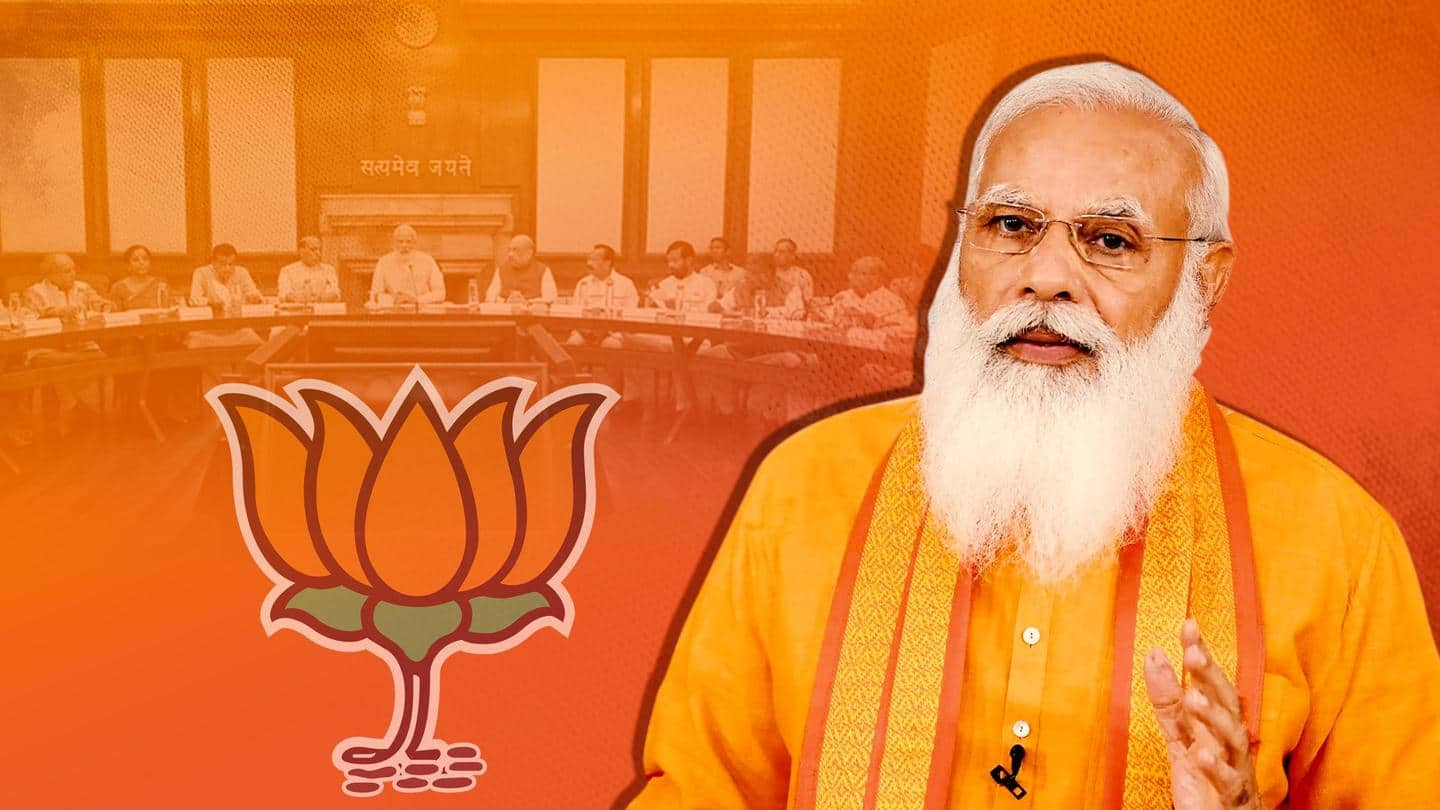
Modi to hold 3-day meet to plan remaining 3 years
What's the story
Prime Minister Narendra Modi is set to hold a key three-day meeting with his council of Ministers to plan for the remaining three years of his government's term, sources in the ruling Bharatiya Janata Party (BJP) told the media.
The decision comes as the government looks to counter immense criticism over its handling of COVID-19, the ongoing farmers' protest, and other issues.
Details
Meeting from Tuesday in the Parliament annexe
The meeting will take place starting Tuesday after 6 pm in the Parliament annexe to chalk out a course for the coming three years, BJP sources told NDTV and News18.
Work of all the Ministers done over the last month will be reviewed and fresh targets will be discussed.
The Ministers will also be briefed about the expectations from them, sources said.
Context
Government facing mounting criticism over several issues
The BJP government, for the first time since coming to power in 2014, has been facing mounting criticism from the Opposition and the public.
It has been accused of mismanaging India's second wave of the coronavirus, and ignoring the demands and protests of thousands of farmers.
More recently, reports suggested the government used a sophisticated spyware to hack mobile phones of journalists and rivals.
Information
Parliament Session marred by Opposition protests
In fact, the ongoing Monsoon Session of the Parliament, which began on July 19, has been marred by Opposition protests over these issues. Leaders from Opposition parties have been calling for discussions on the farmers' issue and the snooping scandal, but the government hasn't budged.
Polls
7 states will go to polls next year
The meeting holds further significance as seven states will conduct elections next year and the national polls are due in 2024.
The government had just last month dropped several top Ministers and inducted new faces into the Cabinet.
Among those who resigned were Health Minister Dr. Harsh Vardhan (replaced by Mansukh Mandaviya) and IT Minister Ravi Shankar Prasad (replaced by Ashwini Vaishnaw).
Other details
Rising prices another cause of resentment among public
Besides the coronavirus management and the farmers' protest, there has been a tremendous surge in prices of fuel, cooking oil, cooking gas and other essentials, triggering resentment among the middle-class and poor voters.
In the past two years, the government has boasted of two decisions mainly - scrapping Jammu and Kashmir's special status and going ahead with the construction of Ram Temple in Ayodhya.